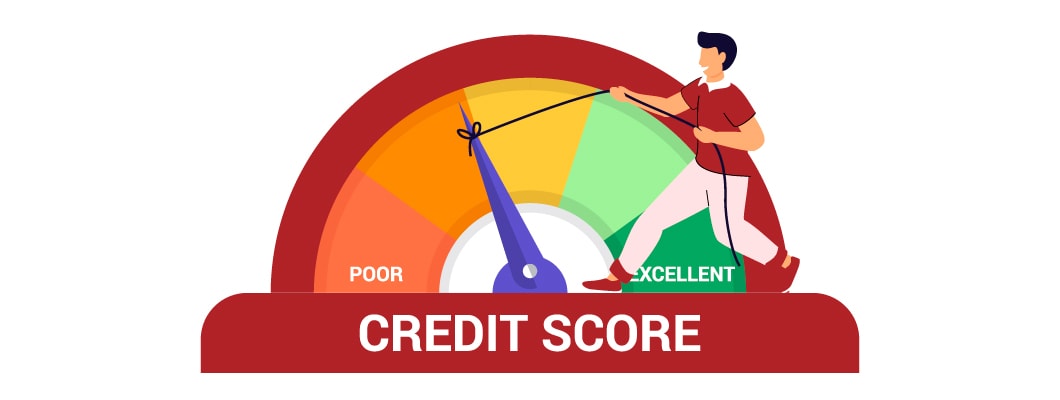
How to Improve Your Credit Score?
Posted on Tuesday, March 28th, 2023 | By IndusInd Bank
A good credit score is an important factor when it comes to getting approved for a personal loan. Your credit score is a three-digit number that ranges from 300 to 900, and it reflects your creditworthiness.
A high credit score indicates that you are responsible with credit, and lenders are more likely to approve you for a loan with favourable terms. On the other hand, a low credit score may mean that you have a history of missed or late payments, and lenders may be hesitant to lend to you or may offer you less favourable terms.
If you have a low credit score, there are steps you can take to improve it and increase your chances of getting approved for a personal loan with good terms.
1. Check your credit report for errors
The first step to boost your credit score is to download your credit report and check it for errors. Your credit report contains information about your credit history, including your payment history, the amount of credit you have, and how long you have had credit accounts. Errors in your credit report can potentially impact your credit score negatively. Common errors on credit reports include incorrect personal information, accounts that don’t belong to you, and inaccurate account balances. You can get a free copy of your credit report from the major credit bureaus, anytime. Review it carefully and raise a dispute with the bureau for any errors you find.
2. Pay your bills on time
Another important factor that affects your credit score is your payment history. Any default in repayments leads to a negative impact on your credit score. Make sure to pay your bills on time, including credit card payments and loan payments. If you struggle at remembering bill due dates, set up automatic payments or reminders.
3. Keep your credit utilization low
Your credit utilization ratio is the amount of credit you use with respect to the total available credit limit. For example, if you have a credit card with a ₹500,000 credit limit and ₹2,50,000 balance, your credit utilization is 50%. A high credit utilization can indicate to lenders that you may be relying too heavily on credit, which is a red flag. Try to keep your credit utilization under 30% to improve your credit score.
4. Don’t close old credit accounts
The length of your credit history is also a key factor that affects your credit score. Closing old credit accounts shortens your credit history and can negatively impact your credit score. If you have credit accounts that you no longer use, consider keeping them open to maintain a longer credit history.
5. Avoid making too many credit inquiries
When you apply for credit, the lender will check your credit report and score as part of the application process. If you apply for too much credit at once, it can have a significant negative impact on your credit score. Try to limit your credit applications and only apply for credit when needed.
To conclude, improving credit score isn’t very difficult but requires financial discipline and mindful spending. You can easily boost your credit score with the above-mentioned expert tips and take control of your financial future.
If you’re looking for instant funds, then do check out IndusInd Bank Personal loan that is mindfully designed to fit into the varied needs of individuals as per their lifestyles. With IndusInd Bank Personal loan, you get to enjoy instant approval, quick disbursal, and flexible repayment tenure options. That’s not all, its application process is 100% paperless and you can also avail the limited time offer of ZERO processing fee*.
Disclaimer: The information provided in this article is generic in nature and for informational purposes only. It is not a substitute for specific advice in your own circumstances. Hence, you are advised to consult your financial advisor before making any financial decision. IndusInd Bank Limited (IBL) does not influence the views of the author in any way. IBL and the author shall not be responsible for any direct/indirect loss or liability incurred by the reader for taking any financial decisions based on the contents and information.



 Offers
Offers Rates
Rates Debit Card Related
Debit Card Related Credit Card Related
Credit Card Related Manage Mandate(s)
Manage Mandate(s) Get Mini Statement
Get Mini Statement
 categories
categories Bloggers
Bloggers Blog collection
Blog collection Press Release
Press Release


